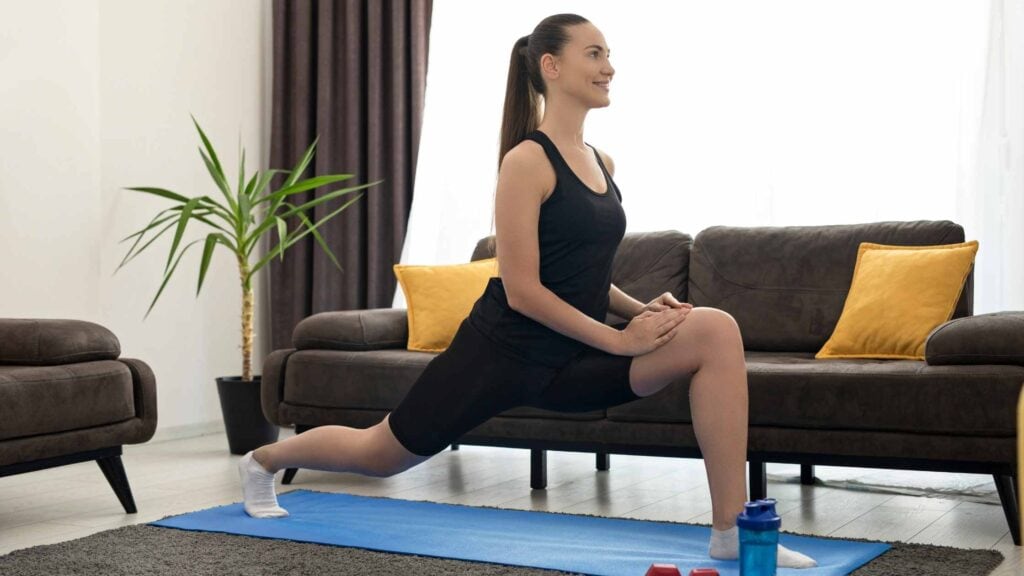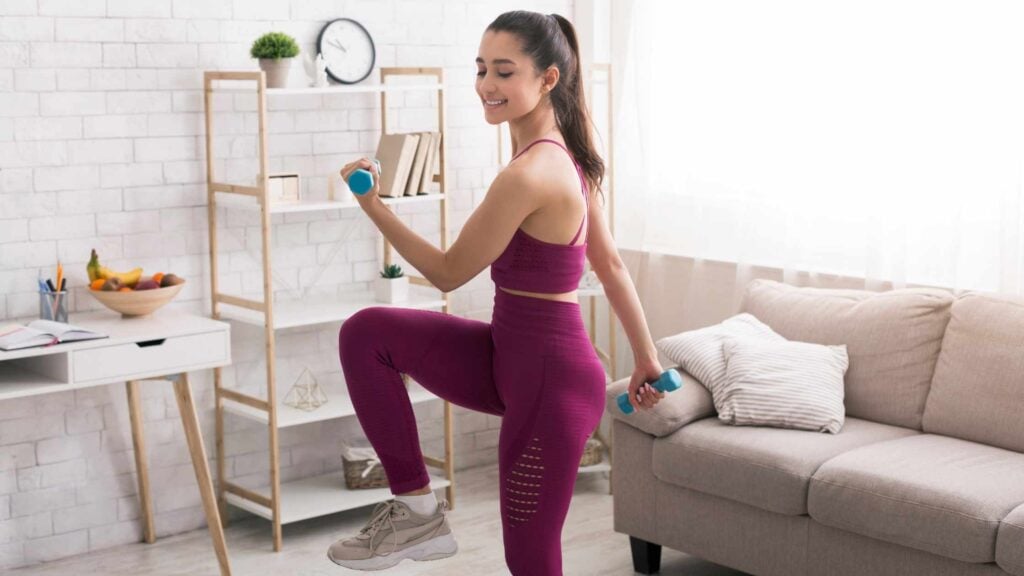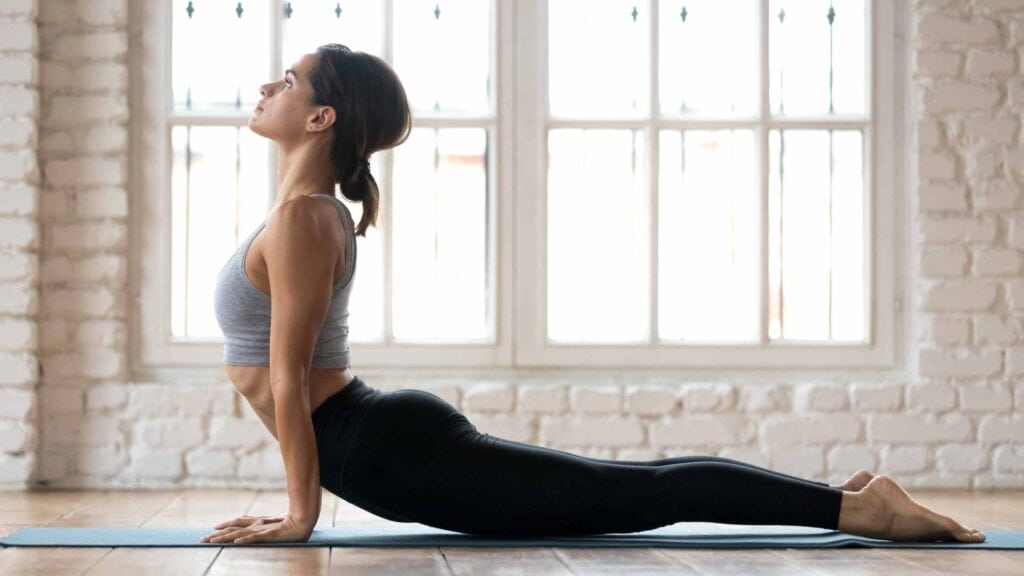Table of Contents
With a vaccine still under development, good hygiene and social distancing remain as everyone’s main lines of defense against COVID-19. Additionally, to limit the spread of the virus, governments and associated health organizations have called for the temporary closure of establishments to reduce physical contact.

If you’re a fitness enthusiast, you may be wondering how you can maintain your physical wellness now that gyms are closed until further notice. Even after the virus has passed, it will take some time before you can go back to your favorite fitness center.
However, now that you’re spending most of your time at home, know that you can still maintain the same level of exercise despite the limited opportunities for physical activity. Luckily for you, there are many simple yet effective ways you can stay fit while under self-isolation.
3 Ways to Stay Active
Investing in an expensive gym membership or acquiring the services of a personal trainer aren’t pre-requisites to staying healthy. All you need is some open space, a few pieces of affordable gym equipment, and a driven mindset. Let’s discuss different things you can do to stay active and healthy at home.
- Create or follow a body weight workout program
Since you won’t have barbells, squat-racks, and other heavy-duty gym equipment in your home, you can look at bodyweight workouts. Following a calisthenics-based workout program is recommended because these exercises can be done at any time and place.
Some exercises such as the pull up may require support bands and a portable bar, but these essentials can be easily bought from your favorite online store.

At the same time, do know that you can also use household items as gym equipment alternatives. Be creative! Loaded backpacks can be a weighted vest substitute, chairs can be used for dips, and water jug can perfectly work as a kettlebell. Just remember to do things safely so you can steer clear of accidents.
- Perform home cardio
If the lockdown regulations are pretty strict in your area, then you may not be able to jog leisurely at all. Getting a treadmill may solve your dilemma, but if you’re facing budget or living space constraints, it’s not a good option. If you’re looking for a quick and easy fix to this issue, then you can perform some cardio in your living room.

Instead of going around in circles in your living room, you should try stationary exercises such as jumping jacks or high knees. It may not fully simulate the sensation of jogging outdoors, but these alternatives are sure to keep your heart rate up. If you want to take things up a notch, then you should challenge yourself with a HIIT workout.
- Stretch it out with some yoga
In yoga, looks can be deceiving—doing it is anything but easy. It’s a very challenging form of exercise that can deliver exceptional results. Apart from improving your overall mobility and flexibility, yoga has other notable health benefits such as minimizing stress, managing depression, and lowering the risk of heart disease.

Since there are many different kinds of yoga classes, it may not be easy to know where to start, especially if you’re a novice. Instead of jumping in a 40-minute intermediate class, you should take things slowly so that your body won’t get overwhelmed.
Healthy Habits You Should Adopt
- Follow a diet
There’s nothing wrong with munching down on some sweets now and then, but always remember to watch what you eat. Snacking may be a great stress reliever when you’re dealing with tough deadlines and responsibilities, but it can be dangerous if you don’t practice restraint. With this in mind, you should count your calories and start following a diet.
Diet and exercise go hand-in-hand. Even though your muscles are getting built whenever you do reps, what you eat still plays a significant factor in defining your overall physique. Other than emphasizing your muscles, following a clean diet helps you recover faster and will keep all sorts of health complications at bay.
Also, take note that diets may work differently from one person to another, so take some time to experiment.
- Get enough sleep
Getting healthy amounts of sleep is just as important as getting enough exercise and following the right diet. If you’ve been having some trouble dozing off in the past few months, do know that you’re not alone. Sleep problems are actually prevalent during this period when the world is facing a crisis.
Staying under self-isolation, dealing with stress from work, and adjusting to a new lifestyle can be a very overwhelming experience for any person. Since these factors can greatly affect your stress levels, the anxiety you feel may cause you to feel restless and disrupt your sleeping patterns.
Compromised sleep may lead to many different problems, such as a weakened immunity system, reduced concentration, and mood swings.
To prevent the consequences of sleep deprivation, you need to develop good bedtime habits. Make it a point to sleep and wake up at the same time every day, reduce your exposure to blue light a few hours before bed, and try to find relaxing activities to calm you down. These small tweaks can significantly improve your sleep quality and energy levels.
- Move out of your work chair
If you’re lucky enough to continue working during this period, be thankful! But, don’t forget to get out of your chair every once in a while, too. Given that you’re spending most of your hours either sitting or lying down this quarantine, you may be putting yourself at risk if you don’t take short breaks.
Building the habit of stretching after every 30 minutes will prevent all sorts of body pain and keep chronic posture problems away. If you’ve been using a hard wooden or monobloc chair, make the switch to an ergonomic one as soon as possible. This won’t only provide comfort, but it’s also a good investment for your health, as well.
Being at Home is Not an Excuse
Self-isolation at home should not be an excuse for you to be lenient. Maintain good health through exercise and a proper diet to minimize your risk of acquiring any disease.


